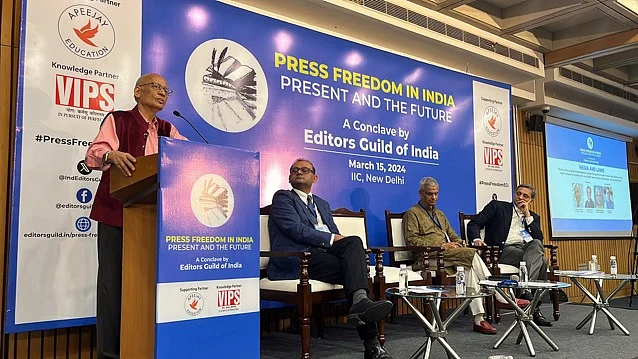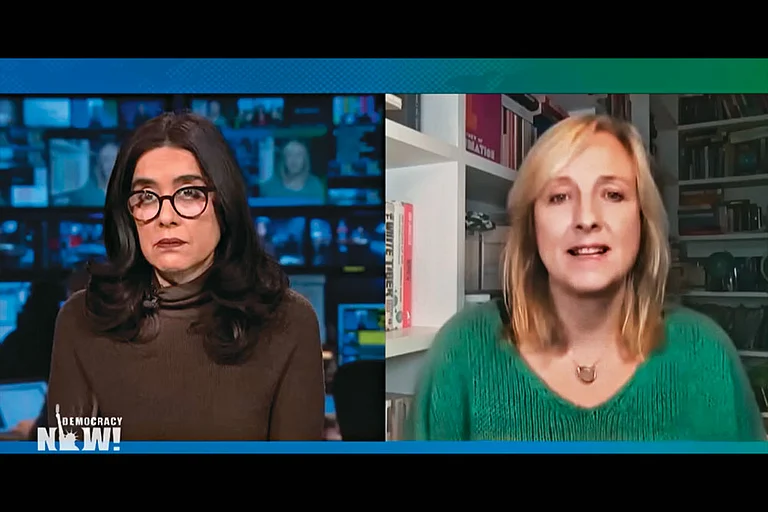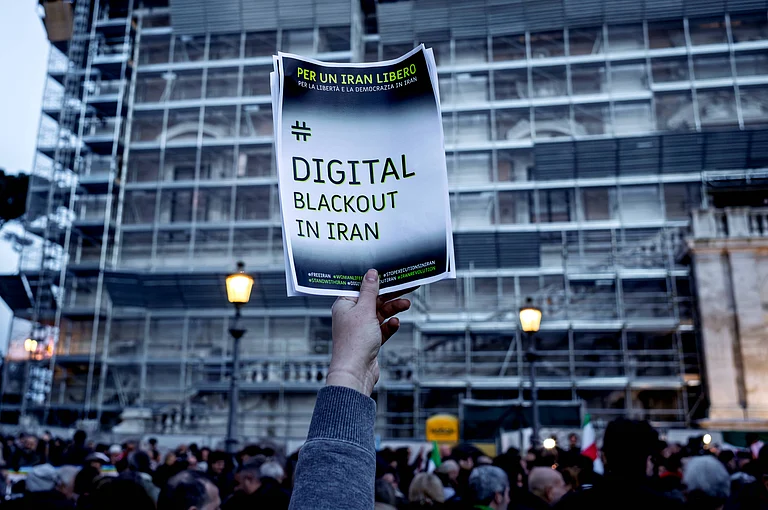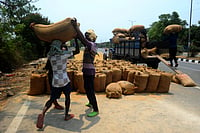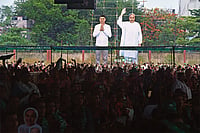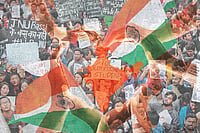The mood was sombre at the India International Centre on Friday (March 15) as some prominent figures of the Indian media, especially print and the burgeoning digital sector, sat down to discuss the growing political and by extension, legal pressure on news perceived to be anti-establishment and other challenges before the fourth pillar as the country heads into a general election seen to be crucial on many fronts. During a day-long conclave organised by the Editors Guild of India on “Press Freedom in India: Present and the Future,” speaker after speaker spoke of the difficulties faced by journalists while covering various aspects of governance and policy, with government agencies allegedly carrying out retributive action against several outlets and individuals.
Speaking during a session called “Nationalism, Propaganda and Media,” the executive editor of The Caravan Hartosh Singh Bal said that curbs on the power and ability of journalism are not a new phenomenon and have continued from previous regimes, but what has changed is that now even major exposés – like the ongoing revelations about donations under the electoral bond scheme – fail to rouse popular imagination, as the political atmosphere in the country has become completely polarised. He asserted that a large section of the population now resembles football fans, who see everyone with a counterview as opponents rather that citizens, so it appears as if news did not matter anymore.
In the same session, The Hindu’s diplomatic affairs editor Suhasini Haidar rued the backlash faced by journalists who critically analyse foreign policy decisions, especially with regard to nations declared as enemies (eg Pakistan, China or even Maldives and Canada in recent times), along with any scrutiny of official actions related to national security. She said that intelligent conversations based on evidence-based reporting had given way to critical journalists being labelled as motivated or biased.
However, not all fingers were pointed towards the government, as the scribes in the hall also stressed the need for the media to introspect on where things had gone awry, with dwindling public faith in news outlets and questionable practices coming to dominate the sector. Om Thanvi, formerly the editor of Hindi daily Jansatta, said that editors had forgotten to stand up straight and do their duty, while rampant commercialisation and absolute control being ceded the management had led to a general loss of face for journalism. He insisted that small, independent journalists and social media users were able to express themselves more freely, rather than those in established outlets.
Incidentally, a large section of the conclave was devoted to the emerging threats to these, so-called alternative media spaces, as journalists and legal experts cited examples of digital stories, social media posts and handles being taken down by the government under a series of laws, such as the Digital Media Act and IT Rules 2021. Moreover, recent legislation such as the Telecommunication Bill, Broadcasting Services (Regulation) Bill and the Digital Personal Data Protection Act were discussed as potential threats to journalistic freedom. Senior lawyer and MP Abhishek Singhvi said that with a slew of legal actions being launched against journalists and outlets, the process could end up being the punishment, and eventually, even if the story or facts under question turned out to be correct, the legal wrangles may ensure that they ended up losing news value or lapsing.
In a session on challenges in the digital era, The Quint co-founder Ritu Kapur said that the government’s fact-checking unit set up under the IT Rules could serve as a way to discredit or censor critical reporting around government’s own data, which has come under the scanner in recent past. The News Minute’s Dhanya Rajendran cited examples of Youtube channels and small media whose outlets had been shut down over alleged national security concerns, although she said that many of them had been able to persist through judicial recourse and sheer determination.
In a session explaining the possible repercussions of the new digital and criminal law for journalists, Advocate Abhinav Sekhri warned that the now suspended sedition charge had been replaced by one related to treason, with a much broader definition that was open to interpretation. Similarly, section 197 of the upcoming Bharatiya Nyaya Sanhita, which will replace the ICC on July 1, criminalises publishing “false or misleading information jeopardizing the sovereignty, integrity and security of India,” something that could be construed as a grey area at the level of enforcement. Sekhri also flagged other provisions in the new code, such as pre-trial custody being extended to up to 60-90 days, seizure of electronic devices without concern for violation of privacy and the authorities’ being granted the powers to attach and sell accused’ property over money-laundering charges even before the trial’s completion and conviction.
Some of the sessions of the conclave, which came on the day after the SBI revealed the electoral bond data on the Supreme Court and resulted in a flurry of media activity on its implication, tried to focus on finding a way forward for independent and anti-establishment media, despite the gloomy predictions over the shrinking space available to them. Rajendran and Kapur, along with Medianama founder Nikhil Pahwa, emphasized the need for collaborations among small independent outlets - such as some already underway in investigative reporting - along with developing a close-knit community of dedicated readers who could eventually provide much-needed economic support and help avoid corporate and government pressures. Pahwa underlined the growing reach and importance of AI-generated news, which he said could potentially push journalists and reporting out of the digital market with sheer volume and speed. The answer, according to him, lay in reaching to the readers and audience directly, without the need for intermediaries such as social media platforms and other big tech.
In an afternoon session, Newslaundry’s Abhinandan Sekhri moderated a discussion that revolved around membership and subscription-based models of revenue for “indie” media outlets, attended by The Wire’s M K Venu, Sabrina Daryanani (FT Strategies) Meena Kotwal (Mooknayak) and Navin Kumar (Article 19 India). Initiatives such as Digipub, a nonprofit formed by digital media organizations to ensure self-regulation and collective representation, were hailed as the need of the hour.
As almost all the news outlets present had had to face multiple lawsuits and complaints at various levels of judiciary, another possible alliance between lawyers and journalists was brought up by senior advocate Shyam Divan, who has argued several important cases on behalf of the EGI. Both Sangvi and Divan said that Article 19 (2) of the constitution, stipulating reasonable restrictions on the freedom of expression, was an important principle, even though it had been used in recent past to as a tool to curb dissent, after EGI’s Anant Nath asked if absolute freedom of speech was viable in the country.
The day-long conclave, which also discussed challenges faced by local journalists in rural areas and mofussil town as well as the need to ensure diversity in newsrooms, raised important questions not only on the shrinking space for critical journalism but also about the role of the media at an important historical juncture for Indian democracy. However, it appeared to be a case of preaching to the choir, as all major names of TV and a large section of the print media were conspicuous by their absence during the event attended by a few dozen journalists and civil society members, even as the rest of the sector and the public prepares for a high-octane electoral campaign that may prove much more significant for the future of journalism in the country than the sage advice offered in the IIC hall.






